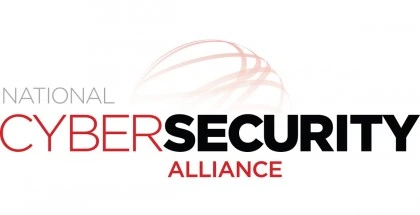The Responsible AI Community in Solidarity with Gaza and the Palestinian People
As members of the Responsible AI Community, we believe that technology can serve and uplift society, but only if we are attentive to the harms and devastating impacts emergent from its development and use. We recognize the role of technology deepening and advancing discrimination, oppression, and state violence everywhere.
For these reasons, and from our full commitment to fundamental human rights, we unreservedly condemn the Israeli state’s latest violence against the Palestinian people in Gaza and the West Bank. As a community of Responsible AI practitioners, researchers, and advocates, we also condemn the use of AI-driven technologies for warmaking, in which the aim is to make the loss of human life more efficient, and the instances in which anti-Palestinian biases are perpetuated throughout AI-enabled systems.
History did not start on October 7th, 2023, but the current crisis reflects the horrific scale and extent of violence enabled by the use of AI-driven technologies. In May 2021, Israel’s army launched what it called the world’s first “AI war” against the people of Gaza. Unit 8200 of the Israeli intelligence agency has been at the forefront of using undisclosed algorithms for military targeting within the occupied territories. In July 2023, Bloomberg reported the Israeli Defense Force (IDF) further embedded AI into lethal operations to “select targets for air strikes and organize wartime logistics,” including the use of an AI recommendation system to select aerial targets. The Israeli government’s use of AI-driven technology has led to strikes against over 11,000 targets in Gaza since the latest conflict started on October 7, 2023.
The Israeli technological-military complex predates the use of AI. It is underpinned by the intrusive biometric and surveillance technologies that laid the groundwork for exponential and expedited dehumanization of Palestinians that we see today. The NSO Group, developer of the Pegasus cyberwarfare software, has been found on the phones of human rights defenders worldwide. Moreover, facial recognition technology restricts freedom of movement across checkpoints, and tools like Smart Shooter automate killing by adding AI to automatic weapons at those checkpoints. These are the very technologies purchased and deployed by law enforcement forces elsewhere in the world to police marginalized and oppressed communities.
Beyond weaponry, algorithmic systems reify and exacerbate the dehumanization of Palestinians. Seemingly innocuous technologies have been weaponized against Palestinians. Recently, Meta’s tools translated Arabic Instagram biographies from “Palestinian, alhumduallah [Praise be to God]” to “Praise be to God, Palestinian terrorists are fighting for their freedom.” Meta-owned WhatsApp created AI-generated images of brown boys with guns when given the prompt “Palestinian.” And years ago, a Palestinian man was arrested at a border checkpoint when Facebook translated his profile message of “Good morning” to “Attack them.” These moments uncover how Islamophobic and xenophobic biases are embedded in the very design of our tech-facilitated media ecosystem.
Now, this decades long, tech-enabled apartheid and occupation of the Palestinian people has culminated in a “complete siege” of Gaza – the densely populated home to 2.1 million residents, of which 1.7 million are refugees, and half of whom are newborns and children. As reiterated by genocide scholars and human rights experts, this siege, bombardment and forced expulsion is tantamount to a genocide of the Palestinian people. To date (November 13, 2023), 11,078 Palestinians in Gaza have been killed, of whom 64% are estimated to be women and children.
As members of the Responsible AI community, we must reckon with the use of AI technology to commit such scales of violence and death that we are witnessing being carried out against Palestinians. We call on our community to demand that Western governments, international bodies such as the UN, and other actors who have influence in the international community push the Israeli government for an immediate ceasefire.
We also call on the technology companies we work with, and for, to:
- Withdraw technology support to the Israeli government and cease defense contracts with the Israeli government and military;
- Protect their employees, such as those at Google and Amazon who have called for an end to Project Nimbus and bravely demanded a ceasefire, from retribution and harassment; and,
- Stop the direct, and passive, automated censorship of content revealing the plights of Gazans and Palestinians on social media platforms such as X/Twitter, Facebook, and Instagram, as these recordings and posts are one of the few ways we are able to support Gazans and Palestinians from near and far.
And finally, we call on all of our colleagues within the AI and tech sectors to stand in solidarity with Palestinians and call for an end to their siege, bombardement and occupation.
Click here to become a signatory.
The letter will be updated with signatories once a day.
Listed in alphabetical order by first name. Affiliations provided for identification purposes only.
- Aaliya Briggs
- Abdel Aziz al-Rantisi, Empirical AI Research, Alexandria University
- Abeer Mukhemir, Software Engineer
- Abu Salah Taha, Gender Bias Researcher, Qatar University
- Afroditi Sakellaropoulou, MPhil University of Cambridge
- Afsaneh Rigot – Founder, De|Center
- Ahmed Mohamed, QMUL, UK
- Ahmed Yassin, Researcher, Al-Azhar University, Cairo
- Aidan Brooks
- Al-Hussein Abutaleb, PhD Student at the People-Centred AI Institute, University of Surrey
- Alejandro Mayoral-Baños, Executive Director and Founder, Indigenous Friends Association
- Alessandra Renzi, Associate Professor, Concordia University, Montreal
- Alex Hanna, Director of Research, DAIR
- Alexandra Mateescu (Researcher, Data & Society)
- Alexandre Costa Barbosa, member, Homeless Workers Movement
- Ali Abdul Rahim, University of Rochester
- Ali Alkhatib
- Amba Kak, Executive Director, AI Now Institute
- Amrita Panesar, Data Scientist, Education First
- Ana Brandusescu, PhD Candidate, McGill University
- Anam Zahid, Teaching Fellow, Information technology university of the punjab, Pakistan
- Aniobi Stanley Tobias (SAT)
- Anoush Najarian, Engineering Manager and Director, Board of Directors of CMG
- Aristides Milios, M.Sc. student, McGill University/Mila
- Arzu Geybulla, Azerbaijan Internet Watch
- Asem Alaa, PhD Student, Imperial College London
- Ayah Soufan, PhD Researcher, University of Strathclyde
- B.V. Alaka
- Bhaskar Mitra, Principal Researcher, Microsoft Research
- Bilawal Hameed, Senior Software Engineer at Spotify
- Brendan Newlon, Ph.D.
- Brian Keegan, Assistant Professor, University of Colorado Boulder
- Brian Ng, Software Engineer
- Brigitte Tousignant, Comms Lead, Hugging Face
- Britney Muller, Founder and Executive Director, Data Sci 101
- Bruno Moreschi, Early-career fellow, Collegium Helveticum, Zurich
- Caitlin Doyle | Technical Program Manager | Great Place To Work
- Caleb Moses, PhD Candidate, McGill University/Mila
- Carlos Barreneche, Associate Professor, Universidad Javeriana
- Chadapohn Chaosrikul
- Cindy Lin, Data Product Manager, Cindy Lin Consulting and LA Tech4Good
- Claudio Agosti, platform auditor and activist; Hermes Center, Reversing.Works, and AI Forensics
- Dalia Hamouda, AI Product Owner
- Damini Satija, Deputy Programme Director, Amnesty Tech
- Daniel Whelan-Shamy | PhD Student at the Digital Media Research Centre Queensland University of Technology (QUT)
- Daniele Metilli, University College London
- Davor Petreski, Researcher, University of Melbourne
- Dima Samaro, Tech & human rights Researcher
- Dina Mikdadi
- Divij Joshi, Doctoral Researcher
- Donatella Della Ratta Associate Professor of Communications and Media Studies John Cabot University Rome
- Dorothy R. Santos, Visiting Assistant Professor, UC Santa Cruz
- Dr Abdul Karim Obeid, Data Engineer and Early Career Researcher at the Queensland University Of Technology node of the Australian Research Council’s Centre of Excellence for Automated Decision-Making & Society
- Dr Abeba Birhane, Mozilla Foundation
- Dr Ana Valdivia, Lecturer in AI, Government & Policy at the Oxford Internet Institute (University of Oxford)
- Dr Iman Saleh, Data Scientist
- Dr J. Rosenbaum
- Dr Jessa Rogers
- Dr Kerry McInerney, Leverhulme Centre for the Future of Intelligence
- Dr Nakeema Stefflbauer, Founder and CEO, FrauenLoop
- Dr Rebekah Cupitt, Birkbeck, University of London
- Dr Syed Mustafa Ali, Lecturer in Computing, The Open University, UK
- Dr Zahra Stardust, Postdoctoral Research Fellow, Queensland University of Technology
- Dr. Gregory Gondwe, California State University – San Bernardino
- Dr. Lena El-Malak, Independent Data Privacy Lawyer
- Dr. Milagros Miceli, DAIR
- Dr. Sasha Costanza-Chock, Associate Professor, Northeastern University
- Dr. Timnit Gebru, Founder & Executive Director of The Distributed AI Research Institute (DAIR)
- Dr. Tony Roberts, Digital Research Fellow, University of Sussex
- Edgar Navarro
- Edwina Hughes, Coordinator, Stop Killer Robots Aotearoa New Zealand Campaign
- Ehsan Dehghan, QUT
- Emily Keddell, Associate Professor, University of Otago
- Emily M. Bender
- Eric Pence, Masters student, MIT 21/22
- Esra’a Al Shafei
- Esraa Ali, Personalization and Recommender Systems, DCU, Ireland
- Essam al-Da’alis, Researcher, AI4Palestine
- Ezequiel Vijande, PhD student at UTN in Argentina
- Fabiola Hanna, Assistant Professor of Emerging Media, The New School
- Farya Hussain – Software/ML Engineer
- Fawzia Zehra Kara-Isitt, Intelligent Data Analysis Group, Brunel University
- Fernanda Bruno, Full Professor at the Federal University of Rio de Janeiro, Brazil
- Fenwick McKelvey, Associate Professor, Concordia University
- Frida Kiriakos, Mozilla
- Gabriel Hope, Visiting Assistant Professor Harvey Mudd College
- Genoveva Vargas-Solar, Principal Scientist. Signing as individual
- Gisela Luján, director, Perú por el Desarme
- Hailey Froese, Mozilla Foundation
- Hanan Elmasu, Director, Mozilla Foundation
- Hassan Yousef, AI Researcher, Qatar university
- Hira Sheikh, PhD Candidate, Queensland University of Technology
- Htaike Htaike Aung, Director, Myanmar Internet Project
- Ilaria Fevola, Legal Officer, ARTICLE 19
- Iqbal, Software Architect
- J. Carlos Lara, Director, Derechos Digitales
- Jac sm Kee, Co-founder, Numun Fund
- Jackie Kay, Research Engineer, Deepmind
- Jamie Hancock
- Jamila Bradley, Principal, Hourglass Collaborative
- Javad Hashemi, Data Scientist, Stitch Fix
- Jeff Doctor, Impact Strategist, Animikii Indigenous Technology
- Jeni Tennison, Executive Director, Connected by Data
- Jessica de Souza
- Joana Varon, Founder and Executive Directress at Coding Rights
- Jonathan Moore, Principal at The Third Revolution
- Jonathan Sterne, Professor, McGill University
- Judith Rweyemamu
- Julia Dressel
- Julia Keseru
- Julia Moreno Perri, Tech Consultant and Trainer
- Julio Gaitán, Profesor, Universidad del Rosario
- Junaid Qadir, Professor, Qatar University
- Justyna Nowak, Mozilla Foundation
- K Chmielinski
- Kagami Rosylight, Mozilla Corporation
- Kai Ninomiya, Software Engineer, Google
- Karen Borchgrevink, Founder and Executive Director, LA Tech4 Good
- Kate Sim, PhD, Oxford Internet Institute
- Katherine Zhou, student @ University of Cambridge
- Kathryn Henne, The Australian National University
- Katya Abazajian
- Khaled Mashal, Senior Research Manager, Kuwait University
- Kimberley Paradis
- Krystal Kauffman, Research Fellow, DAIR Institute
- Laura Vodden, Data Scientist, QUT Digital Media Research Centre
- Léa Yammine, Co-Director, the CeSSRA
- Lindsay Weinberg, Clinical Assistant Professor, Purdue University
- Liz B. Marquis, PhD Candidate at UMSI and UXR at MathWorks
- Lori Regattieri, former Senior Fellow Trustworthy AI at Mozilla Foundation
- Lujain Ibrahim, PhD student, Oxford Internet Institute
- Marah Ramadan, MSc Student, Universitat Autònoma de Barcelona, Spain.
- Marc Faddoul, Director, AI Forensics
- Maream Abudoleh, master AI student, Istanbul Aydin University
- Margarita Ochoa, PhD candidate, Queensland University of Technology
- Maria Eugenia Villarreal, ECPAT/SEHLAC
- Mariah Mendoza, Program Coordinator for Belonging, Equity, and Inclusion, Purdue University
- Mariam Ali Issa, PhD Student, UC Irvine
- Marius, Student, Stockholm School of Economics
- Mark Dempsey, EU Senior Advocacy Officer, ARTICLE 19
- Marlena Wisniak, human rights lawyer
- Megan Bull, Software Engineer, Perceptronics Solutions Inc.
- Michael Blake – Director, The Francis Dinh Blake Foundation
- Michael Madaio, Research Scientist, Google Research
- Michelle Lin, Mila – Quebec AI Institute, McGill University
- Moe Fayez, Software Engineer
- Mrs. Majd ismail
- Muawiz Chaudhary, Masters, Mila
- Nabil Alshurafa, Dr., Medical and Computing Researcher
- Nagla Rizk, Professor, The American University in Cairo
- Nahema Marchal, Research Scientist, Google DeepMind
- Naomi Barnes, Dr. QUT
- Nari Johnson, PhD Student, CMU
- Natalie Kerby, Researcher, AI Forensics
- Nathan Freitas, Director, Guardian Project
- Nathan Kim, PhD student, University of Michigan School of Information
- Neil Ballantyne, Doctoral Candidate, University of Otago, Aotearoa New Zealand
- Nika Mahnic, PhD candidate, Queen Mary University of London
- Nikhil Dharmaraj, MPhil in Ethics of AI, University of Cambridge
- Nina J. Sangma, Communications Programme Coordinator, Asia Indigenous Peoples Pact
- Nishant Subramani, PhD student at CMU
- Paola Ricaurte, Feminist AI Research Network
- Petra Molnar, Faculty Associate, Berkman Klein Center for Internet and Society, Harvard University
- Peyrin Kao, Lecturer, UC Berkeley
- Phillip Kieval, University of Cambridge
- Prateek Waghre, Executive Director, Internet Freedom Foundation
- Prathibha Chandra
- Pratyusha Ria Kalluri, PhD, Stanford
- Prima Shariff
- Professor Marcus Foth, QUT
- Pyrou Chung, Director, Open Development Initiative
- Rabab Benrabah, Sales Executive. IBM
- Rachel Coldicutt, Executive Director, Careful Trouble
- Ramak Molavi Vasse’i, Digital Rights Advocate, The Law Technologist
- Rayya El Zein, Director of Partnerships, Code for Science & Society
- Reem Suleiman, Oakland Privacy Advisory Commissioner, Mozilla Foundation
- Renata Avila, Human Rights Lawyer
- Reshem Khan, AI Ethics Lead, non-profit/public
- Riccardo Angius, Researcher, AI Forensics
- Rida Qadri, Research Scientist, Google
- Riham Samaneh
- Robin Netzorg, PhD Student, UC Berkeley
- Robin Vanderborght, PhD researcher, University of Antwerp
- Ruth, Stanford University
- Ryan Burns, Associate Professor, University of Calgary
- Salah al-Arouri, Director, Hebron University
- Salah al-Bardawil, Research Manager, Cairo University
- Salvatore Romano, AI Forensics
- Samer Hassan, Associate Professor / Faculty Associate, Universidad Complutense de Madrid / Berkman Klein Center at Harvard University
- Sandra, Stanford University
- Sara Marcucci, The GovLab
- Sarah Ahmed, Technical Writer, Salesforce
- Sarah Chander
- Sarah Grant, MA Student, Concordia University
- Sarah Myers West, Managing Director, AI Now Institute
- SEHLAC NETWORK
- Shahed Warreth
- Shreya Chowdhary, PhD Student, University of Michigan School of Information
- Shuvi Jha, CS student at Stanford
- Simone Brugiapaglia, Assistant Professor, Concordia University
- Soizic Pénicaud
- Stefanie Felsberger, University of Cambridge
- Syed Ahtesham Ul Haq, Data Analyst
- Tamara Vukov, Associate Professor, Université de Montréal
- Tarcizio Siva, Researcher, Desvelar
- Tess Buckley, AI Ethics and Literacy Advisor, HumansForAI
- Tiffiniy Cheng, Cofounder Fight for the Future
- Tim Davies, Research Director, Connected by Data
- Tim O’Gorman, Senior Research Scientist, Thorn
- Tina M. Park, Ph.D., Partnership on AI
- Tomás Dodds, Assistant Professor, Leiden University
- Trisha Suri, cofounder at stealth startup, Carnegie Mellon alum, human
- Txetxu Ausin, AI ethics researcher, CSIC (Spain)
- Ulises Mejias, Professor, SUNY Oswego
- Usman Anwar, PhD Student, University of Cambridge
- Vahid Razavi, Founder NoEthicsInBigTech.com
- Vidushi Marda, Co-Executive Director, REAL ML
- Vikas Dhiman, Assistant Professor, University of Maine
- Wanda Muñoz, Feminist AI Research Network
- Warren Armstrong, Social Impact Technologist / Director, Little Owl
- Xiaowei R. Wang, PhD, UCLA Center on Race and Digital Justice
- Xue Ying Tan, Software Engineer, QUT
- Yahya Sinwar, Research Scientist, Islamic University of Gaza
- Yomna Elsayed, Researcher
- Zee Fryer, Senior Data Engineer









